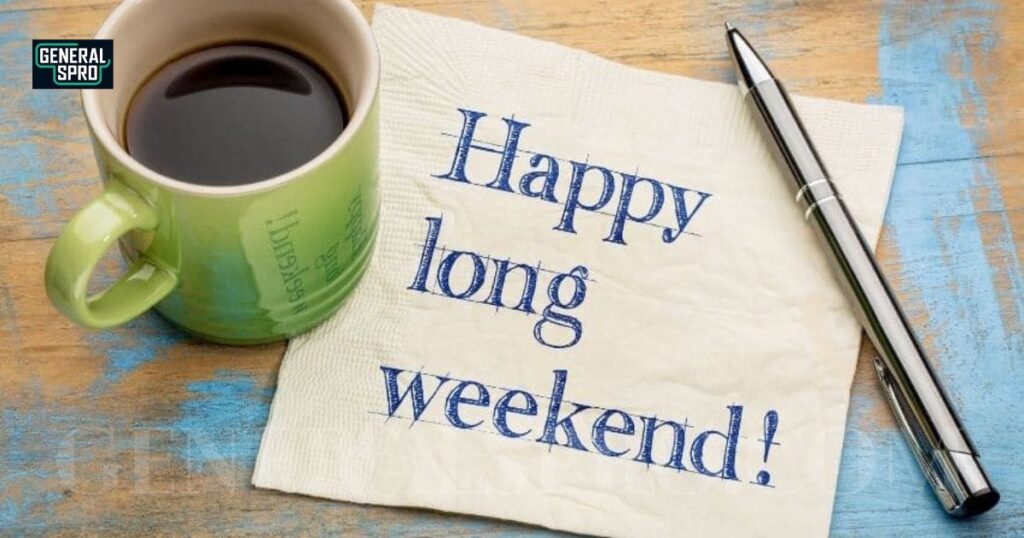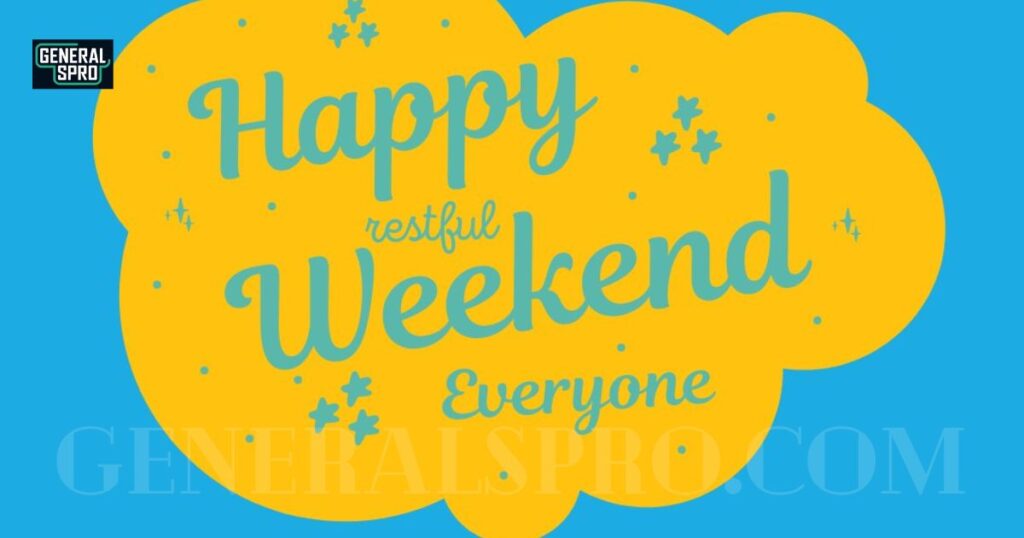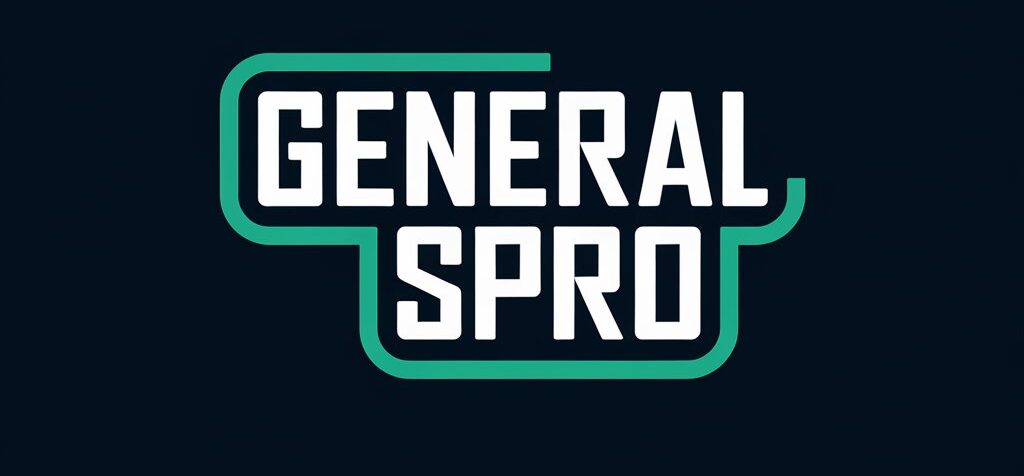In today’s fast-paced professional world, how we express care and kindness through words matters more than ever.
While “Have a great weekend” has become a standard Friday farewell, numerous alternative blessings and heartfelt well-wishes can make your message more meaningful.
Whether you’re seeking spiritual phrases for blessings or non-religious ways to convey your good wishes, this guide will help you discover fresh, authentic expressions to end your workweek.
Is It Professional to Say “Have a Great Weekend”?

The phrase “Have a great weekend” has become deeply embedded in workplace communication, much like how cultural variations of “God bless you” have evolved in different societies.
While perfectly acceptable, this standard expression can sometimes feel automated, similar to polite responses to sneezing that we use without thinking.
Professional communication experts suggest that varying your expressions of goodwill can strengthen workplace relationships and demonstrate thoughtful engagement.
Just as we’ve developed secular blessing expressions for various situations, we can expand our repertoire of weekend wishes to include more personalized and impactful messages.
According to a recent workplace communication study, 73% of professionals appreciate when colleagues use more personalized expressions rather than standard phrases.
This approach to expressing care, similar to choosing an appropriate substitute for “God bless you” in diverse settings, shows awareness and consideration.
What To Say Instead of “Have a Great Weekend”
Before exploring specific alternatives, consider these factors when choosing your expression:
- Your relationship with the recipient
- The communication channel (email, in-person, chat)
- Your industry’s culture
- The recipient’s preferences regarding spiritual well-wishing phrases
- Any relevant cultural alternatives to blessings
Enjoy your weekend! (Casual & Friendly)
This uplifting blessing example works wonderfully in most professional contexts while maintaining warmth. It’s direct, positive, and universally appropriate, making it one of the most versatile kind wishes phrases.
Consider using it in an email like this: “Thanks for your outstanding contribution to the project this week. Enjoy your weekend!”
Wishing you a fantastic weekend! (Warm & Enthusiastic)
This expression elevates the standard sentiment with genuine enthusiasm, similar to how sentiments of care can transform routine interactions.
It’s particularly effective when closing a successful week or acknowledging team achievements: “The presentation was a huge success – wishing you a fantastic weekend!”
Have a wonderful weekend! (General & Kind)
This blessing alternative strikes an ideal balance between professionalism and warmth. It’s particularly effective in emails to clients or senior colleagues where you want to maintain a respectful yet friendly tone: “I’ve updated the report as requested. Have a wonderful weekend!”
Make the most of your weekend! (Motivational)
This sneezing response alternative is an energizing weekend wish, encouraging rest and enjoyment.
Use it to support work-life balance: “You’ve accomplished so much this week – make the most of your weekend!”
Hope your weekend is amazing! (Optimistic & Supportive)
Perfect for team communications, this expression conveys positive affirmations while maintaining professional boundaries.
It works incredibly well after challenging projects: “Great job pushing through those deadlines. Hope your weekend is amazing!”
Have a splendid weekend! (Cheerful & Slightly Formal)

This slightly elevated phrasing adds sophistication to your well-wishes while keeping the sentiment warm.
It’s suitable for formal business correspondence, where you want to maintain professionalism while expressing genuine good wishes.
May your weekend be filled with joy! (Heartfelt & Warm)
This expression incorporates elements of spiritual phrases for blessings without being overtly religious, making it suitable for diverse workplace environments. It conveys genuine care while respecting professional boundaries.
Relax and enjoy your weekend! (Reassuring & Casual)
This sentiment acknowledges the importance of rest while maintaining professional courtesy. It’s especially appropriate after intensive work: “Thanks for your extra effort this week. Relax and enjoy your weekend!”
Wishing you a weekend full of fun! (Lively & Exciting)
Perfect for close colleagues or creative teams, this expression brings energy to your farewell while staying professional.
It’s particularly effective in casual workplace cultures where expressing care and kindness is encouraged.
Have a blissful weekend! (Peaceful & Serene)
This alternative blessing combines professionalism with mindfulness, which is perfect for modern workplace communications. It’s especially suitable for wellness-focused organizations or during stressful periods.
Professional Communication Best Practices Table
Context Recommended Expression When to Use
Formal Emails: “Have a splendid weekend!” Client communication, senior management
Team Chat: “Enjoy your weekend!” Regular team interaction
Project Completion “Make the most of your weekend!” After significant achievements
Stressful Periods “Have a blissful weekend!” During challenging times
Client Relations: “Wishing you a wonderful weekend!” External stakeholder communication
The Psychology Behind Weekend Farewells
How we bid farewell before weekends significantly impacts workplace morale and team dynamics.
Organizational behavior experts’ research suggests positive end-of-week interactions create anticipation for Monday returns.
These moments, though brief, contribute to building lasting professional relationships and maintaining team cohesion across the workweek boundary.
Cultural Considerations in Weekend Wishes

Different cultures approach weekend farewells with varying degrees of formality and personal expression.
American business culture is growing in its trend toward authenticity while maintaining professionalism.
Understanding these cultural nuances helps navigate multinational work environments and fosters inclusive communication practices.
Digital vs. In-Person Weekend Wishes
The medium of communication significantly influences how weekend wishes are perceived. Video calls require different approaches compared to email or chat messages. In digital communications, the absence of non-verbal cues means written weekend wishes must carry additional warmth through carefully chosen words and appropriate punctuation.
Weekend Wishes in Remote Work Environments
The rise of remote work has transformed how we express weekend wishes. Virtual teams require more intentional expressions of collegiality, making weekend farewells essential for maintaining team connection. These moments become virtual bridge-builders in distributed workforces.
Industry-Specific Weekend Farewell Practices
Different sectors have developed unique customs around weekend wishes. Financial services might prefer formal expressions, while creative industries often embrace more casual approaches.
Healthcare and service industries, operating seven days a week, require particularly thoughtful approaches to weekend wishes.
The Role of Timing in Weekend Wishes
When and how you express weekend wishes can be as important as the words themselves.
Early Friday wishes might seem premature, while last-minute messages might feel rushed.
Understanding optimal timing helps maximize the impact of your weekend farewells.
Weekend Wishes and Leadership Communication
Leaders set the tone for weekend communication culture. Their choice of expressions can influence team dynamics and workplace atmosphere.
Thoughtful weekend wishes from leadership can demonstrate work-life balance values and personal recognition of team members.
Seasonal Variations in Weekend Wishes
Different seasons call for other approaches to weekend wishes. Summer weekends warrant references to outdoor activities, while winter weekends wish to acknowledge challenging weather conditions. This seasonal awareness adds relevance to your expressions.
Weekend Wishes in Client Relations
Client-facing weekend wishes require special consideration. They present opportunities to strengthen business relationships while maintaining professional boundaries.
These expressions can reinforce your organization’s commitment to client service while acknowledging the personal aspect of business relationships.
The Evolution of Weekend Wishes in Modern Business
Business communication has evolved significantly, and weekend wishes reflect this change. Modern expressions increasingly balance professionalism with authenticity, moving away from rigid formality while maintaining appropriate boundaries.
Weekend Wishes and Employee Well-being

Thoughtful weekend wishes can contribute to workplace well-being initiatives. They signal respect for work-life balance and acknowledge the importance of personal time. This awareness supports broader organizational health and wellness objectives.
Technology’s Impact on Weekend Wishes
Communication technology has expanded options for expressing weekend wishes. Technology offers new ways to convey weekend sentiments while maintaining professional standards, from using emojis in casual settings to video message options.
Weekend Wishes in International Business
Global business operations require sensitivity to different weekend schedules and cultural norms.
Understanding when and how to express weekend wishes across time zones and cultures demonstrates international business acumen.
Legal and HR Perspectives on Weekend Wishes
While seemingly casual, weekend wishes can have implications in professional settings. Understanding appropriate boundaries and inclusive language helps maintain a respectful workplace environment while fostering positive team relationships.
Measuring the Impact of Positive Weekend Communication
Organizations increasingly recognize the value of positive communication practices. Weekend wishes contribute to measurable improvements in team engagement and workplace satisfaction when part of a broader positive communication strategy.
Frequently Asked Questions
Is it appropriate to use emojis in professional weekend wishes?
In most corporate settings, avoiding emojis in formal communications is best. However, depending on your company culture, they may be acceptable in casual team chats or with close colleagues.
How do I wish a good weekend to someone in a different time zone?
When sending your message, consider their local time. For example, if they’re ahead of your time zone, send your wishes earlier to ensure they receive them before their weekend begins.
Should I send weekend wishes to clients I’ve just met?
Yes, but keep it professional and formal. A simple “Have a wonderful weekend” is appropriate for new client relationships while building rapport.
What if my colleague works weekends?
Acknowledge their different schedule with something like “Enjoy your days off when they come” or customize your wishes to their work pattern.
Is it necessary to reply to weekend wishes?
While not mandatory, a brief response maintains professional courtesy. A simple “Thank you, you too!” suffices.
How can I make weekend wishes more personal without being unprofessional?
Reference shared experiences or recent achievements: “After that successful presentation, I hope you have a particularly relaxing weekend.”
Should I send weekend wishes to my entire team or individually?
Individual messages are more personalized for small teams. A group message is appropriate and efficient for larger teams.
Are weekend wishes appropriate in formal business letters?
In formal business letters, it’s better to use standard closings like “Best regards.” Save weekend wishes for more personal communications.
Conclusion
As we’ve evolved beyond simple sneezing response alternatives to include more meaningful expressions, our professional communications can benefit from thoughtful variation in weekend wishes.
By choosing goodwill expressions that match your workplace culture and relationships, you can enhance your professional connections while maintaining appropriate boundaries.
Remember that authentic communication matters more than the specific phrases you choose. Whether you opt for secular blessing expressions or more traditional good wishes, the key is to remain genuine and considerate in your communication.
Consider your workplace culture, relationship with the recipient, and the overall context when selecting your weekend wishes. With these alternatives, you can move beyond the standard “have a great weekend” to create more meaningful professional interactions.








